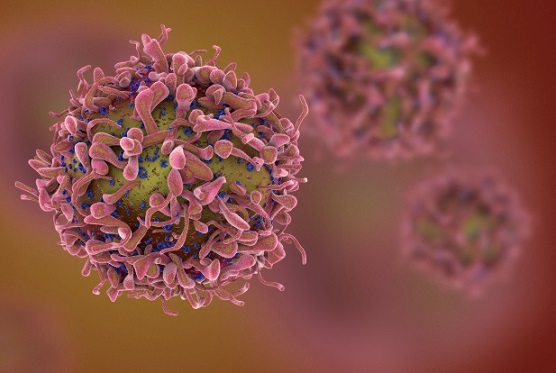Russian Scientists Discover That T Cell Disruption May Be the Hidden Driver of Lingering Long COVID Symptoms
Nikhil Prasad Fact checked by:Thailand Medical News Team Jul 28, 2025 6 months, 4 weeks, 2 hours, 43 minutes ago
Thailand Medical News: A team of scientists from the Saint Petersburg Pasteur Institute, First Pavlov State Medical University of St. Petersburg, and the Institute of Experimental Medicine has discovered alarming immune disruptions in patients with COVID-19 and long COVID that may help explain the condition's persistence. The study involved 231 participants—including patients with acute COVID-19, long COVID sufferers, convalescents, and healthy volunteers.
 Russian Scientists Discover That T Cell Disruption May Be the Hidden Driver of Lingering Long COVID Symptoms
Russian Scientists Discover That T Cell Disruption May Be the Hidden Driver of Lingering Long COVID Symptoms
Using advanced techniques to analyze T cells—key components of our immune defense—the researchers found that although the overall number of major T cell types looked normal, major disruptions were happening beneath the surface. This
Thailand Medical News report highlights how certain "naïve" T cells that are responsible for adapting to new infections were drastically reduced in people with COVID-19. Meanwhile, immune cells known as Th2 and Tc2, which are typically associated with allergy-like or autoimmune reactions, were significantly increased.
Long COVID Shows a Troubling Immune Pattern
In those who developed long COVID, a different immune landscape emerged. These individuals showed an abnormal increase in naïve cytotoxic T cells, reduced memory cells, and a disturbing shift in cell polarization toward Th2 and Th17 types. This change points toward autoimmune-like activity, possibly triggered by the virus lingering in the body or the immune system attacking the body’s own tissues.
Interestingly, the study also measured TREC—tiny DNA fragments used to gauge the body’s ability to produce new T cells in the thymus. While TREC levels were lower in acute infections, they were normal or even elevated in long COVID patients, suggesting that the body may be trying to compensate by producing more new T cells.
Another key finding was the significant drop in T follicular helper (Tfh) cells among long COVID patients. These cells help other immune cells produce antibodies. A lack of Tfh cells might explain why some long COVID sufferers have impaired immune memory, poor vaccine responses, or chronic inflammation.
The Immune System Remains in Disarray Long After Infection Ends
The research shows that even months after the initial infection, the immune system remains unbalanced in people with long COVID. Many immune cells are either missing from the bloodstream—likely having moved to inflamed tissues—or remain stuck in an abnormal, ineffective state. The study paints a picture of ongoing immune confusion, possibly driving symptoms such as fatigue, brain fog, and breathlessness.
The scientists suggest that long COVID may be driven by a blend of leftover viral debris, autoimmune activity, and disrupted immune memory. They call for future treatments to focus on restoring immune balance rather than only treating symp
toms.
The study findings were published in the peer reviewed International Journal of Molecular Sciences
https://www.mdpi.com/1422-0067/26/15/7258
For the latest on Long COVID, keep on logging to
Thailand Medical News.
Read Also:
https://www.thailandmedical.news/news/minocycline-and-japanese-herbal-medicine-may-offer-hope-for-long-covid-and-acute-infections
https://www.thailandmedical.news/news/oxaloacetate-trial-offers-hope-for-long-covid-brain-fog-and-fatigue-relief
https://www.thailandmedical.news/news/long-covid-and-the-hidden-changes-in-red-blood-cells
